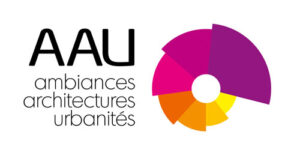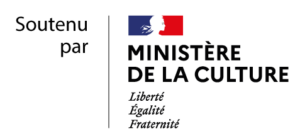
Localisation
Cergy-Pontoise, France
Mapping the sensitive memories of political violence
The seminar brings together researchers in social sciences, cartographers and human rights activists / NGOs. The purpose is to reflect on the challenges of mapping urban violence and the memories of violence which are most of the time conflicting. The workshop seeks to discuss the possibility and purposes of mapping political violence from a variety of data collected on the ground, among populations, by actors and activists from non-governmental organizations, Human rights organization and by researchers. The workshop will propose a comparative approach of two cities which can be considered in a state of war: Srinagar, in Kashmir and Hebron, in Palestine.
Reflections will first focus on the production of the data collected on the ground: the methodology, the themes, the voices. Testimonies gathered from inhabitants and various actors constitute a set of narratives and stories that are subjective, sensory and emotional (sadness, feelings of injustice, anger and pain…). Most of the time they are the only sources to keep a memory of urban violence and to certify various forms of repression suffered by citizens for decades. Yet, the collecting process will be discussed, as it also questions the collaboration between academics and human rights defenders, the encounter between engagement and research. The collaboration of researchers and activists will have to be examined in its contours and limits, without forgetting the necessity to consider the role of the disciplinary legacies in a “post-colonial” perspective.
Secondly, the seminar will focus on diverse methodologies of mapping the violence, discussing participatory mapping methods, crossing ‘map-activism’ or counter-mapping, as a tool of «counter-memory» construction. It will also look into the practical means to map narratives and sensory memories, their efficacy and reproducibility. The seminar will therefore focus on the relevance of the mapping as tool for spatializing the violence and make it visible in the city, in a context of systematic erasure of traces and prohibition of any monument or sites of memory dedicated to the victims in urban landscape. The seminar may thus question what choices to operate in mapping painful memories and urban violence, exploring ways opened by ‘sensitive mapping’: calling for the citizens participation and narratives led to map ‘facts’ of violence, but also to include emotions aroused by violence (fear, pain, anger, feeling of injustice…), and not to forget the ability of political violence to shape a mundane and pervasive atmosphere of uncertainty.
One of the important themes of the workshop is to discuss theoretical, methodological and empirical approaches to studying and mapping what might be called the ‘atmospheres of occupation’ within the urban landscape by taking into account the structural, material and technological apparatuses of occupation. The seminar will discuss how the a affective/emotional, historical, cultural and visceral dimensions of resistance to the occupation machinery can have visibility in the mapping production. By shedding light on how both the strategies of occupation and the counter-strategies of resistance are co-produced and co-acted within the same urban space simultaneously our study would seek to understand the so called ‘dangerous spaces,’ the ‘safe spaces’.
Finally, the reflection will also focus on the uses of this mapping, by different categories of stakeholders: NGOs, Human Rights organizations, researchers, inhabitants, institutional actors and the authorities. Tools of denunciation and resistance, instruments of truth and justice for some, maps will appear to others as questionable oriented and propaganda.
Organizers
- Rafiq Ahmad, Université du Cachemire
- Anne Hertzog, Université de Cergy-Pontoise, Laboratoire MRTE
- Damien Masson, Université de Cergy-Pontoise, Laboratoire MRTE

Thursday, January 19th
9.30 – 10:00 /// Welcome and coffee
10.00 – 11.00 (with discussion)
Damien Masson, Anne Hertzog, Rafiq A. Pirzada – Introduction, methodological perspectives
11.00 – 12.00 (with discussion)
Emily Doerner (Geographer, University of Northern Colorado) – Forest Cover and Change in the Kashmir Valley: Militarization, Environmental Degradation, and Adaptation
12.00 – 13.30 /// Lunch
13.30 – 15.30
Issa Amro (Youth Against Settlements, Hebron) – Mapping the Apartheid in Hebron, mapping the violence of occupation
Maeiannaa Castellari (Architect, Polytechnic of Milan): “Mapping Hebron’s Apartheid”: an interactive map of the occupied city. Mapping as a tool of analysis of the urban conflict
15:30 – 16:00 /// Pause
16.00 – 18.00
Parvez Ahmad, (Srinagar) – Brief about JKCCS & Its Role for the Protection and Promotion of Human Rights in Conflict Affected Indian Administered Jammu and Kashmir
Rafiq A. Pirzada (University of Kashmir, Srinagar) – Understanding/Mapping the Visceral in the Ambiances of Resistance: An ethnographic approach to mapping political violence in the Indian Kashmir
18.00 – 18.30
Collective discussion
Friday, January 20th
10:00 – 12:00
Workshop: participatory mapping of the Kashmir region (1)
12:00 – 13:30 /// Lunch
13:30 – 15:00
Workshop: participatory mapping of the Kashmir region (2)
15:00 – 16:00
Collective discussion abouts the maps
Closing debate / Research Perspectives



